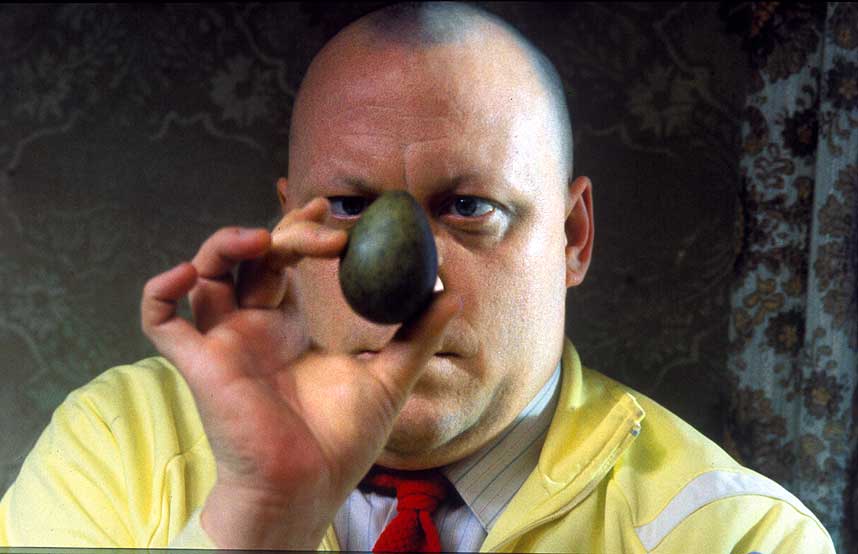
This is a story about how superficially unexpected incidents within a very controlled day-to-day life, can turn the very same upside down in a most dramatic way, even though these incidents can't be said being fatal for the afflicted, at least not directly.
Stig (
Bjørn Floberg) and Ane (
Kjersti Holmen) live and work together, he as a stand up comedian and she as his manager.
Stig is very succesful but on the same time a man not recognizing his limits and making jokes about everything and everyone, also in the private life, sometimes taking advantage of people's weaknesses or perceived weaknesses in a way that render him less popular, to say the least.
During one of Stig's shows, a man dies from a heart attack during an outburst of laughter.
This changes Stig in a way that makes him unable to concentrate on his work, as the man haunts him in his dreams and even during his performances where Stig believes he sees him in the audience looking back at him in an accusing way, as if he blaims Stig for his death. In a way Stig feels guilty as it's actually a death caused by his jokes.
At a dinner with the family, that is to say, the two sisters of Ane, their husbands and Ane's parents, her mother reveals that she has had a relationship while being married to her husband Göran (
Keve Hjelm). This she reveals during a (boring) speech by Göran where he talks about their long and faithful marriage(!).
This 'confession' leads Göran to pack his bag and leave the home.
As Stig doesn't function 'normally', his wife takes on the show, both as a stand up comedian and as a singer. She is succesful, something Stig can't accept as HE is the star!
Will he get back on stage and what will happen with Ane's parents?
Ane seem to be the center of the world in every way as she at first was responsible for Stigs show, now taking on the same show both as an artist and a manager for herself and at the same time trying to support her mother during the parental crisis.
The film displays the danger with living in a imaginative bubble of being perfect and 'invulnerable' or having perfect relationships, not reflecting over what holds them together and if that which holds them together is strong enough to support smaller or bigger 'catastrophies'.
Good acting but on the same time there are to many scenes from the stage and this sometimes render the film a certain unnecessary repetitive pattern, even if this might be done purposely by the director
Erik Gustavson.
(Photo poster copied from: http://cdn.mymovies.ge/posters/51f/4d61ac777b9aa154cb00551f/h-rer-du-ikke-hva-jeg-sier-original.jpg)














